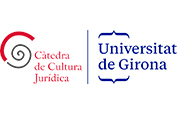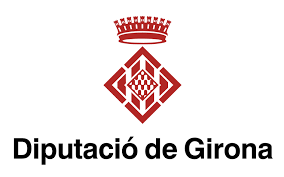About the Journal
AIMS AND SCOPE
Quaestio facti is an international journal on evidential legal reasoning, published electronically and in open access. Its publisher and editor is the Cátedra de Cultura Jurídica of University of Girona and is distributed by Marcial Pons.
The journal's aim is to host and disseminate an analysis of the problems posed by evidential legal reasoning in the application of law, not only within the context of a judicial process, but also within the wide range of administrative proceedings.
As does evidential legal reasoning, Quaestio facti aspires to position itself within the boundaries of various disciplines, such as procedural law, legal epistemology, the international law of human rights, forensic sciences, as well as between the cultural ambits of the Common Law and the Civil Law traditions.
From the outset, it is important to emphasise that Quaestio facti is not a journal centred around the evidence law of one country or another. This is why we only publish original works that touch upon general problems related to legal evidential reasoning. These problems must exceed the scope of a mere discussion of interpretation issues or relevant judicial decisions regarding some evidence, statute or regulation of a concrete national legislation.
Quaestio facti is aimed at researches, scholars, students and readers from all over the world who are interested in the subject matter of the journal.
Quaestio facti is published biannually and it considers original works in Spanish, English, Italian and Portuguese, which are selected through a blind peer review process.
The journal is structured in four sections:
- The Essays section, that includes general articles
- The Conjectures and Refutations section presents an article and 4 to 5 critical reactions to it. The Conjecture is a contribution by invitation from the editorial team, while the authorship of the Refutations is proposed by the author of the main article.
- The Iuris Prudentia section includes a judicial review case, where some aspect of evidentiary reasoning is discussed.
- The Science for Legal Proceedings section contains an article introducing new scientific developments relevant to legal fact-finding.
Renewal of the Editorial Team
The journal's editors-in-chief are renewed every ten years through a selection process. The individuals who will serve as director are selected by the Redaction Committee and the Editorial Committee from among the candidates proposed by the outgoing editors-in-chief.
PUBLICATION FREQUENCY
Quaestio facti started with an annual publication frequency, publishing the complete volume with the final layout in January of each year.
From 2023 it was considered appropriate to increase the frequency of publication to twice issues a year. From that year onwards, the first issue is published in January and the second in June.
However, all the articles that are favourably reviewed, after the pertinent corrections and a provisional layout, are instantly pre-published on the website. The complete issue is published in January and June of each year.
OPEN ACCESS POLICY
Quaestio facti is an open access journal, therefore all articles are available online and can be consulted free of charge.
Following the Budapest Open Access Initiative, users may read, download, copy, distribute, print, search or link to the full text of the contents of the journal without legal or financial barriers, except for the author's right to be properly acknowledged and cited.
Access to the journal's contents does not require prior registration or payment of a fee.
ARVHIVING
Quaestio facti uses LOCKSS system, which guarantees a permanent and secure archive of the published articles. In addition, LOCKSS allows the content of the journal to be stored and distributed among participating libraries. The LOCKSS publisher manifest page is https://revistes.udg.edu/quaestio-facti/gateway/lockss.
The content of the journal is also available in the institutional repository of the University of Girona, which can be accessed through the following link: https://dugi-doc.udg.edu/handle/10256/17743
USE OF INTEROPERABILITY PROTOCOLS
Quaestio facti. International journal on legal reasoning uses the OAI-PMH interoperability protocol, which facilitates the exchange of metadata and content over the Internet.
It is available at: https://revistes.udg.edu/quaestio-facti/oai








